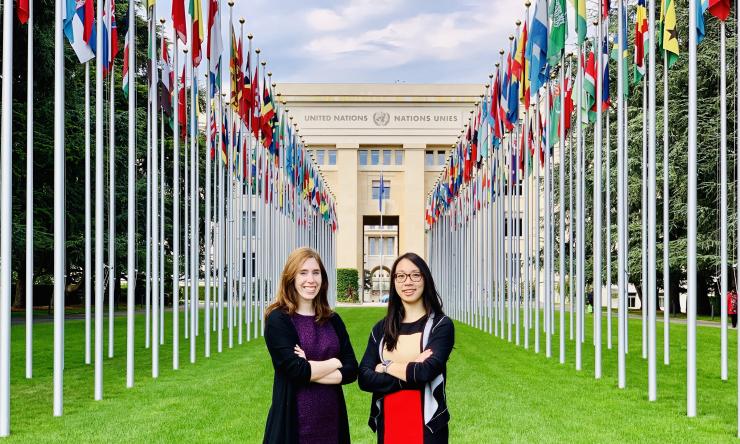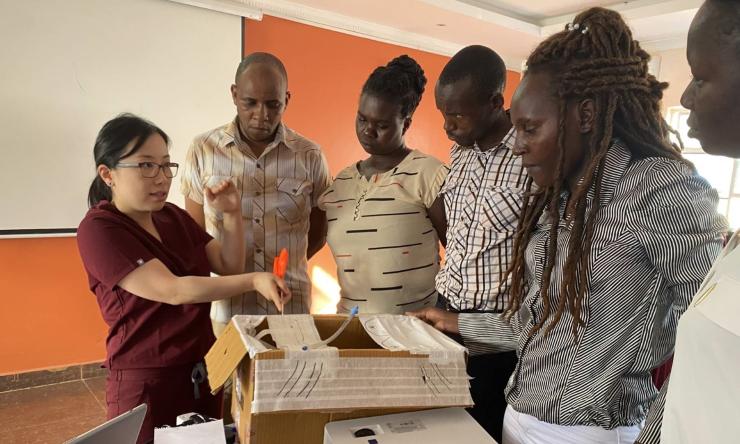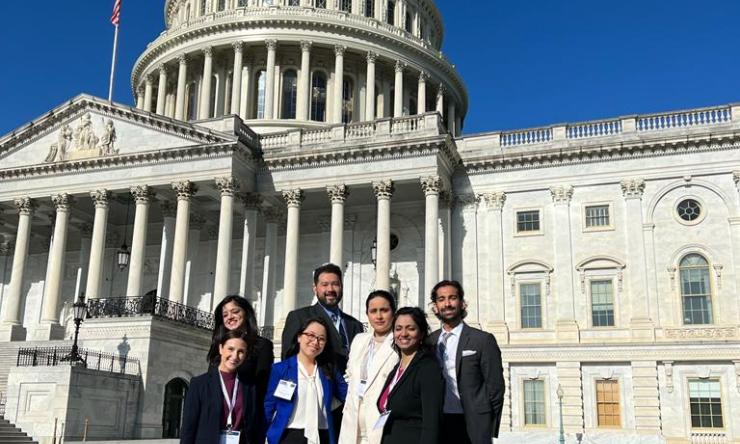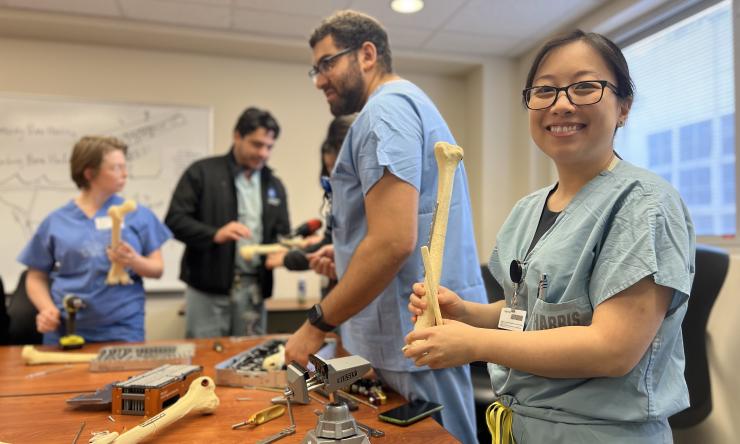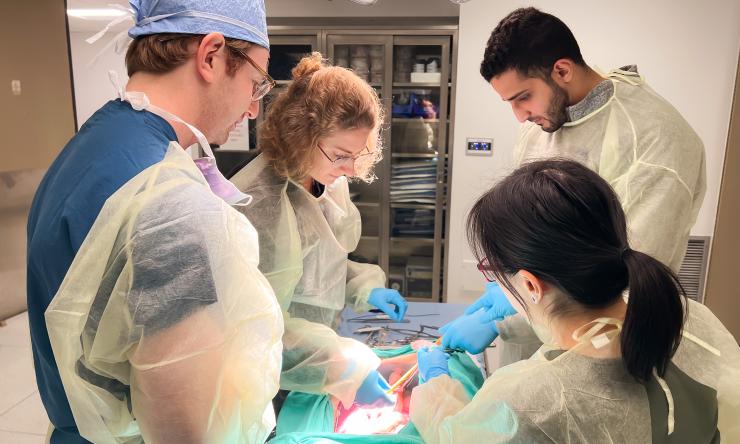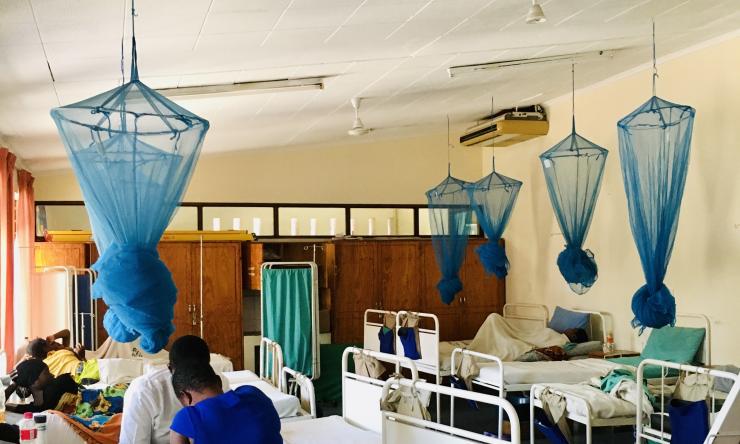The Need for Global Surgery Training
Five billion people lack access to safe, timely and affordable surgical care worldwide. Access to quality surgical and anesthetic care is a significant health disparity and one of the most pressing global health challenges. Major international organizations involved in global health are now prioritizing surgical access and infrastructure. The World Health Organization (WHO) has emphasized surgical and anesthetic care as part of universal health coverage and the need to develop international surgical and anesthetic guidelines. Similarly, the World Bank identified 44 cost-effective, essential surgeries that can dramatically reduce the global surgical disease burden in the fields of general surgery, obstetrics, ophthalmology, orthopedics, oral and maxillofacial surgery, otolaryngology, neurosurgery and plastic and reconstructive surgery.
By investing in surgical infrastructure and capacity the health of individuals in resource-limited settings can be dramatically enhanced. This is especially true given that:
- 85% of people in resource-limited settings will have a surgically treatable condition by age 15
- One-third of all childhood deaths are attributable to a surgically treatable condition
- Without surgical infrastructure, low-income countries will contribute to $12.3 trillion in lost economic productivity by 2030

About the Center
Located in the largest medical center in the world, Baylor College of Medicine has a history of training physicians to provide exceptional medical care across the globe. Home to the National School of Tropical Medicine, Baylor International Pediatrics AIDS Initiative at Texas Children’s Hospital and other global health initiatives, the Texas Medical Center provides a natural stage for international health collaboration and advancement.
Special Global Surgery issue of Surgery News
The Baylor College of Medicine Center for Global Surgery aims to improve access to safe, timely and quality surgical care through education, collaboration, advocacy and research. The Center functions as a hub for global surgery education, collaborative partnerships and global health innovation. It offers a variety of global surgery training programs on-site and through virtual and remote platforms for practicing physicians, fellows and residents. These programs are designed to prepare clinicians to provide excellent surgical care in resource-limited settings, thoughtfully lead disaster relief efforts and enhance surgical humanitarian aid campaigns through ethical, community-centered approaches.
Baylor Center for Global Surgery education initiatives include:
- The only NRMP-Certified Global Surgery Track within General Surgery Residency
- Global Surgery Advocacy and Policy Fellowship
- Medical Student Global Surgery Research Elective
- Essential Surgery Skills Course
- Global Trauma Collaboration
- Global Cardiothoracic Surgery Casablanca Case Series
- Texas Children's Hospital Pediatric Surgery Fellowship Collaboration - Guatemala
- University of Global Health Equity
Institutional collaborations include:
- The Global Surgery Foundation
- World Health Organization
- Texas Children’s Global
- National School of Tropical Medicine
- Rice Baker Institute for Public Policy
- Rice 360
Global Surgery Residency Track
The Michael E. DeBakey Department of Surgery offers the first and only NRMP-recognized Global Surgery training program in the nation.
Resident Success Stories
Global Surgery Track Resident success stories from around the globe.
Advocacy and Policy Fellowship
The Global Surgery Advocacy and Policy Fellowship is a collaborative effort that combines global surgery education resources from Baylor College of Medicine with the policy education resources at Rice University’s Baker Institute for Public Policy.
Virtual Educational Programs
The Center for Global Surgery is actively creating new virtual opportunities for discussion, education and participation.
Global Surgery Research
Research topics include ethics in global surgery, global surgery education, sustainability in global surgery, surgical infrastructure design in resource-limited settings, pediatric oncologic disease burden, remote and robotic surgery in austere environments.
Make a Gift
Your gift to the Center for Global Surgery will help pioneer new procedures and technologies, advance medical research, improve the quality of patient care and train the next generation of surgeons, educators and innovators.
Center for Global Surgery
One Baylor Plaza MS390
Houston, TX 77030
Phone: (713) 798-6078
Email: GlobalSurgery@bcm.edu









